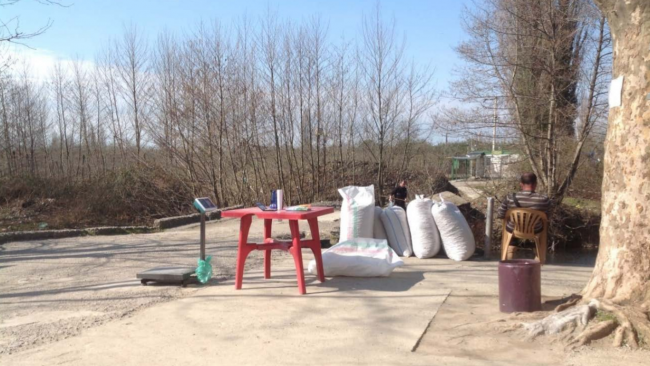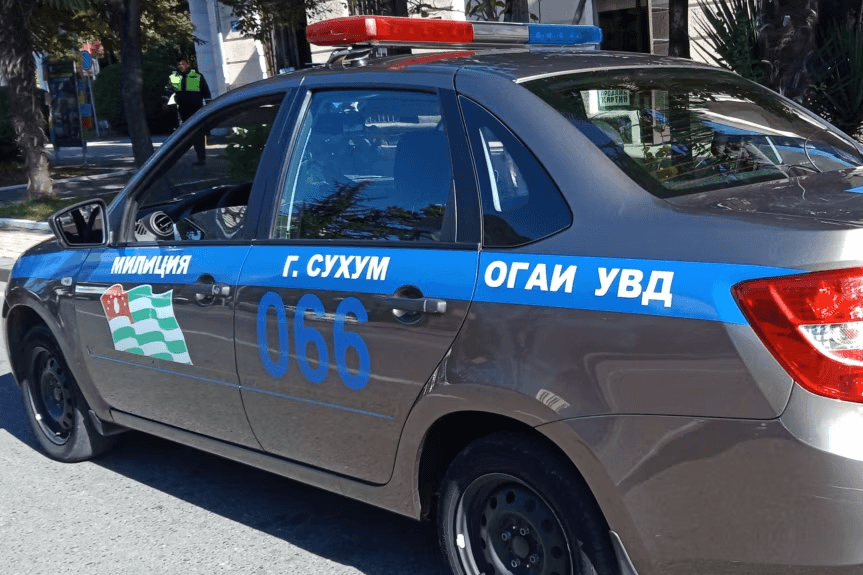

 The human rights of communities in Abkhazia’s Gali District have been gradually deteriorating, according to a report by the Georgian Public Defender. The report focused on the effects of closures of border crossings.
The human rights of communities in Abkhazia’s Gali District have been gradually deteriorating, according to a report by the Georgian Public Defender. The report focused on the effects of closures of border crossings.
According to the report, discrimination against the population in Gali District, including the closure of crossing points, problems in receiving identity documents, and restrictions on Georgian medium education could result in people from Gali leaving Georgia.
[Read on OC Media: Georgians in Gali — foreigners in their own land]
There were five crossing points operating on the border after 2013, which were used regularly by Gali residents, including students and patients seeking medical treatment. Three of these were closed in April 2016 and March 2017, leaving only two crossing points — Enguri and Saberio-Tskoushi, the report says.
The report cites Niels Scott, Resident Coordinator of the UN in Georgia as saying that ‘the closure of the remaining pedestrian crossing points will likely affect at least 1,000 crossings a day on average’.
Scott also warned that the restrictions will negatively affect access basic services such as healthcare and education for people in Abkhazia.
The report also noted that Abkhazia’s authorities have increased penalties for ‘illegal border crossing’, with fines increasing from ₽2,000 before 2016 to ₽4,800–₽6,000, as well as administrative detention for repeated violations. The penalty for people who live in Tbilisi-controlled territory is ₽30,000, and since 2017 has been accompanied by lengthy detentions, the report adds.
The report also notes the impact of the closures on the local economy, with dozens of taxi drivers, porters helping people with their luggage, shops and cafes, as well as hazelnut and scrap metal merchants operating near the border have been forced to stop operating.
According to the report, the closure of the Khurcha-Nabakevi and Orsantia-Otobaia crossing points adversely affected approximately 3,400 families residing in 11 villages in Lower Gali, who used these crossing points most frequently. As a result, the cost and time of traveling and transporting goods have largely increased, it added.
The report says that ‘elderly residents find themselves in the most difficult situation’, as in many cases they live alone in Gali with relatives living on the other side of the border.
Schoolchildren no longer crossing
The closures have also created problems for schoolchildren and preschool children who previously crossed in order to go to school, the report notes. In the 2015–2016 academic year of, five pupils commuted from the village of Khurcha in Zugdidi Municipality to the village of Nabakevi in Gali District; in the 2017–2018 academic year, this has fallen to zero. In 2015–2016, 15 pupils commuted from the village of Otobaia of Gali District to the village of Ganmukhuri in Zugdidi Municipality; this number was 17 pupils in 2016–2017; but again, the report notes, no pupils are making this journey in 2017–2018.
In 2016, 11 preschool children from Gali’s Nabakevi were enrolled in the Khurcha kindergarten; in 2017, only two, who stayed with their parents in the village of Khurcha during the week, were enrolled. The report notes that there is no kindergarten in the village of Nabakevi.
The Public Defender recommended that the Georgian Government extend state programmes for the population in Abkhazia as much as possible, including education and healthcare programmes, as well as socio-economic aid initiatives.
For ease of reading, we choose not to use qualifiers such as ‘de facto’, ‘unrecognised’, or ‘partially recognised’ when discussing institutions or political positions within Abkhazia, Nagorno-Karabakh, and South Ossetia. This does not imply a position on their status.









